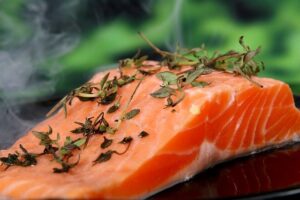Introduction
Chicken tenderloins are a popular cut of meat that is known for its tenderness and versatility in cooking. When it comes to maintaining a balanced diet, knowing the nutritional content of the foods we consume is essential. One important aspect of a balanced diet is ensuring an adequate intake of protein. In this article, we will explore the question: how many grams of protein are in a chicken tenderloin?
Protein Content in Chicken Tenderloin
Chicken tenderloins are a lean source of protein, making them a popular choice among health-conscious individuals. The exact protein content in a chicken tenderloin can vary slightly depending on factors such as the size of the tenderloin and the specific breed of chicken. On average, a 3-ounce (85 grams) serving of chicken tenderloin contains approximately 24 grams of protein. This makes it an excellent choice for individuals looking to increase their protein intake without consuming excessive amounts of fat.
Health Benefits of Protein
Protein is an essential nutrient that plays a crucial role in various bodily functions. It is a building block of tissues, including muscles, skin, and organs. Consuming an adequate amount of protein is important for maintaining and repairing these tissues. Additionally, protein is involved in the production of enzymes, hormones, and antibodies, which are essential for overall health and wellbeing.
Including protein-rich foods like chicken tenderloins in your diet can provide several health benefits. Protein helps to promote satiety, keeping you feeling full for longer periods and reducing the likelihood of overeating. It also plays a role in maintaining healthy bones, as it is involved in the production of collagen, a key component of bone tissue. Furthermore, protein is essential for muscle growth and repair, making it particularly important for individuals who engage in regular physical activity or strength training.
Other Nutritional Components of Chicken Tenderloin
While protein is a significant component of chicken tenderloin, it is also important to consider other nutritional aspects. Chicken tenderloins are low in fat, particularly saturated fat, which is known to increase the risk of heart disease when consumed in excess. They also contain essential vitamins and minerals, including vitamin B6, vitamin B12, zinc, and selenium.
However, it is worth noting that the nutritional content of chicken tenderloins can vary depending on the cooking method and any added ingredients. For example, breaded or fried chicken tenderloins will have a higher fat content compared to grilled or baked ones. It is advisable to choose cooking methods that minimize the addition of unhealthy fats and maximize the retention of nutrients.
Conclusion
Chicken tenderloins are a delicious and nutritious source of protein. With approximately 24 grams of protein per 3-ounce serving, they can contribute significantly to meeting your daily protein needs. In addition to protein, chicken tenderloins offer various other essential nutrients, making them a healthy choice for individuals looking to maintain a balanced diet.
References
– USDA FoodData Central: fdc.nal.usda.gov
– Healthline: healthline.com
– MedicalNewsToday: medicalnewstoday.com












